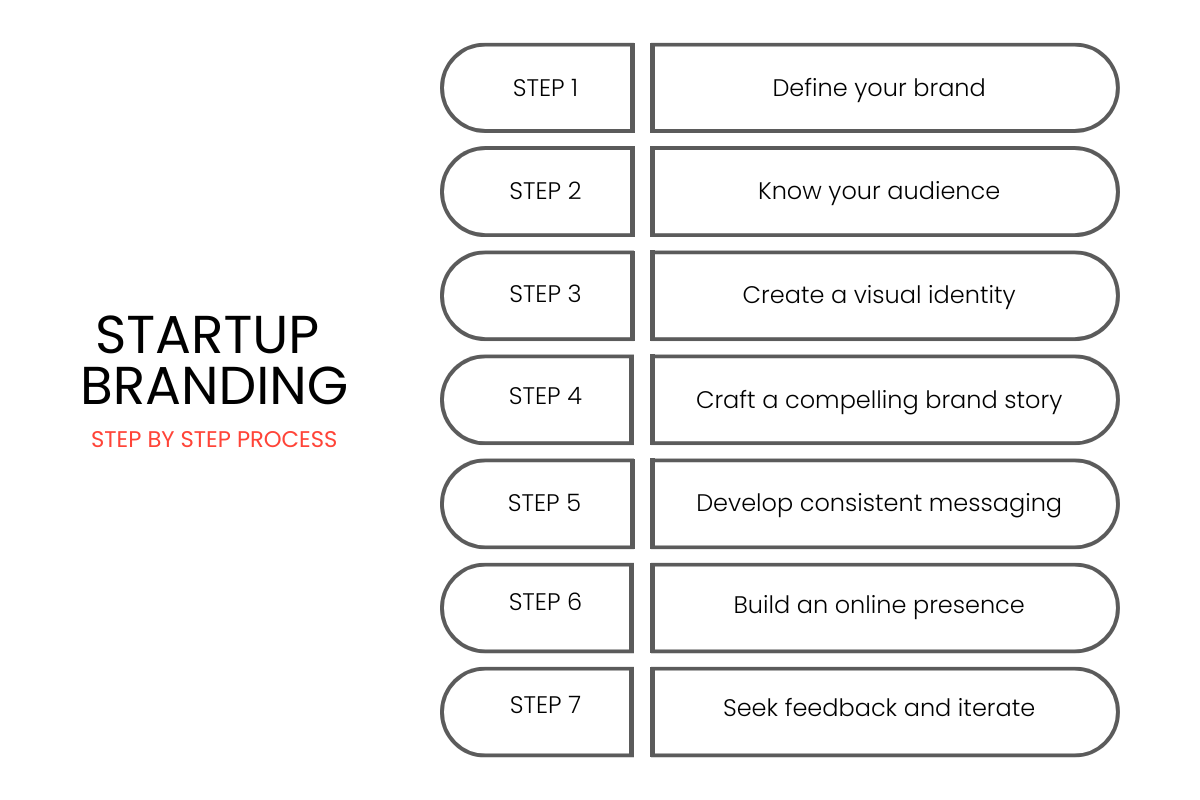Humans are evolutionarily wired to be drawn to stories. From prehistoric cave paintings depicting the intricacies of nomadic life to modern-day blockbuster extravaganzas, narratives have always shaped our understanding of the world.
With the rise of media and advertising, savvy marketers were quick to capitalize on the profound impact that storytelling has on our minds — and wallets. Thus, they began meticulously crafting identities for their products.
In other words, they understood that peddling one’s wares is not just about supplying a demand. It is also the art of selling an idea.
In the early 20th century, the “Torches of Freedom” campaign famously linked cigarettes to female empowerment, showcasing the vast commercial potential of promoting an idea rather than a tangible product. Fast forward to the present, and iconic brands like Apple have perfected the craft of promising a certain lifestyle that comes with their sleek gadgets. The tech giant’s marketing transcends the features of its devices, focusing on the idea of innovation, simplicity, and creativity.
Today, marketing is all about crafting a narrative that resonates with the consumer, making them not just buyers but believers in a broader concept. Brands become the storytellers of the business world, using logos and messaging to create a narrative that resonates with consumers. These brand stories tap into our emotional core, fostering a connection that goes beyond products or services.
Why branding is important for startups
In the ever-shifting landscape of the startup world, where innovation is the currency and competition is the norm, the significance of effective branding cannot be overstated. It is more than just a memorable image or a catchy slogan — it is the heartbeat of your venture, defining its identity and shaping the way it is perceived.
Uber, with its unmistakable ‘U’ logo, disrupted the way we travel, promising accessibility and reliability wrapped in a modern package. Meanwhile, Netflix evolved from mailing DVDs to streaming stardom, painting the world in red with its logo, a beacon for quality content and on-demand convenience.
As we embark on this exploration of startup branding, we draw inspiration from global success stories such as these and break down all the essentials – what startup branding is, why it matters, and how you can craft a brand that not only stands out but tells a story that endures and captivates.
As the song goes, “If you start me up, I’ll never stop”. So, let’s get this stone rolling and find out how the power of startup branding transforms ventures from unknown entities to recognized, resonant brands.
Reasons for having a branding strategy for startups
At its core, branding is the process of creating a unique and identifiable image for your startup in the minds of your target audience. Here are the key reasons why you need a branding strategy:
Differentiation in a crowded market
In the bustling startup ecosystem, differentiation is paramount. A meticulously crafted brand serves as a beacon, guiding customers through the sea of innovative ideas, products, and services. It provides a distinct identity that makes your startup not just another player but a compelling choice.
Building trust and credibility
Establishing trust is paramount for successful startups, especially when entering markets where skepticism towards newcomers is prevalent. A robust brand, communicating professionalism and reliability, becomes a trust-building tool. It assures your audience and stakeholders that your startup is a credible player worth engaging with.
Attracting investors
Beyond the allure of a groundbreaking product or service, investors seek alignment with a startup’s values and vision. A compelling brand story becomes a crucial element in attracting investors who not only see the potential for growth but resonate with the narrative your brand weaves.
Fostering customer loyalty
In this highly competitive arena, customer loyalty is a treasure. A well-defined brand goes beyond transactional relationships, creating a genuine connection with customers. This connection is rooted in shared values, making customers not just consumers but advocates who champion your startup’s mission.
Adaptability and scalability
Startups are dynamic entities, evolving with market trends and scaling their operations. A strong brand foundation serves as a flexible framework that facilitates seamless adaptation. It provides a roadmap for growth, ensuring that your brand remains coherent and impactful across different stages of development.
Steps in the branding process
Define your brand
A compelling brand starts with a clear definition. Identify your startup’s mission, vision, core values, and unique selling points. This initial step lays the foundation for creating an identity that resonates with your audience.
Know your audience
Understanding your target audience is not just beneficial, it is pivotal. Thorough market research helps you identify the needs, preferences, and behaviors of your potential customers. This knowledge becomes the compass guiding the creation of a brand that truly connects.

Create a visual identity
Your logo is the visual ambassador of your brand. Investing time and resources in designing a memorable and versatile logo pays dividends. Consistency in visual elements such as color schemes and typography across all platforms enhances brand recognition and reinforces your startup’s personality.
Craft a compelling brand story
Beyond facts and figures, a compelling brand story adds depth and resonance to your startup’s identity. Sharing the journey, values, and vision that fueled the creation of your company forms an authentic narrative. This authenticity enhances the emotional connection with your audience, transforming them from mere customers to brand enthusiasts.
Develop consistent messaging
Consistency is the backbone of effective branding. Defining your brand voice and ensuring its consistency across all communication channels, including your website, social media, and marketing materials, reinforces your brand identity and solidifies the image you wish to convey to your audience.
Build an online presence
In the digital age, if you do not exist online — you simply do not exist. That is why having a robust digital presence is indispensable. Creating a user-friendly website, establishing a presence on relevant social media platforms, and engaging with your audience through valuable content contributes to brand visibility and accessibility.
Seek feedback and iterate
The journey of branding is a continuous loop of improvement. Actively seeking feedback from customers, stakeholders, and team members provides invaluable insights. This feedback becomes the raw material for refinement and iteration, ensuring that your brand strategy remains responsive to the evolving needs of your audience.
Startup branding tips for success
Be authentic
Authenticity is the bedrock of successful branding. Authentic communication, genuine representation of your startup’s values, and an honest portrayal of your offerings all build trust and connect your brand with your audience on a human level.
Stay consistent
Whether a customer encounters your brand on your website, social media, or marketing materials, they should be met with a cohesive visual and messaging identity. This transforms your brand from a mere name into a familiar and reliable presence.
Embrace flexibility
While consistency is important, brand strategies should also always be flexible. Embracing adaptability allows your brand to respond effectively to market changes and evolving customer expectations. It is a balance between staying true to your core values and embracing the evolution to stay relevant.
Prioritize customer experience
Prioritizing your customers’ experience ensures that your brand promise translates into positive interactions. From the first point of contact to post-purchase engagement, every touchpoint contributes to the overall perception of your brand.
Invest in professional design
Visual elements are the key to shaping brand perception. Investing in professional design services ensures that your logo and other visual elements align seamlessly with your brand’s personality and values. It is an investment that pays off in the form of a visually appealing and coherent brand identity.
FAQs about startup branding
1. How much time does it take to establish a strong brand for a startup?
The timeline for building a strong brand varies based on factors such as industry, target audience, and the complexity of your startup’s offerings. Keep in mind that it is an ongoing process that requires consistent effort and adaptation.
2. Can branding help a startup recover from a negative image?
Yes, a strategic rebranding effort can help a startup recover from a negative image. It involves reassessing and realigning the brand with positive values and rebuilding trust with the target audience.
3. What role does social media play in startup branding?
Social media is an indispensable tool for building brand awareness, engaging with the audience, and conveying your brand’s personality. It provides a platform for authentic communication and customer interaction.
4. Is branding a one-time effort or an ongoing process for startups?
Building and maintaining a strong brand is an ongoing process where you have to adapt to evolving market dynamics, customer perceptions, and the growth stages of the startup. Consistent effort is required for enduring success.
Start building your brand identity today
In the competitive landscape of startups, effective branding is not a luxury but a necessity. It is the compass that guides your startup through the complexities of the market, helps it stand out, and fosters lasting connections with customers and investors.
By understanding the importance of branding, following a systematic branding strategy process, and implementing best practices, your startup can create a brand that not only survives but thrives in the ever-evolving business world.
If you need help building a brand that leaves a lasting impression and propels your startup toward a future of success, our team is here for you.


